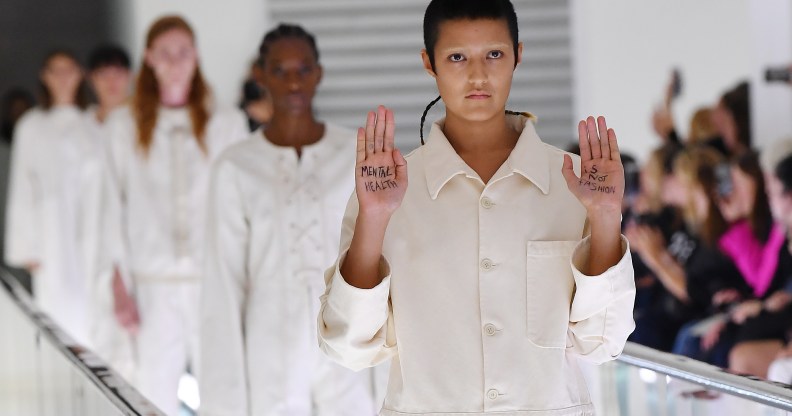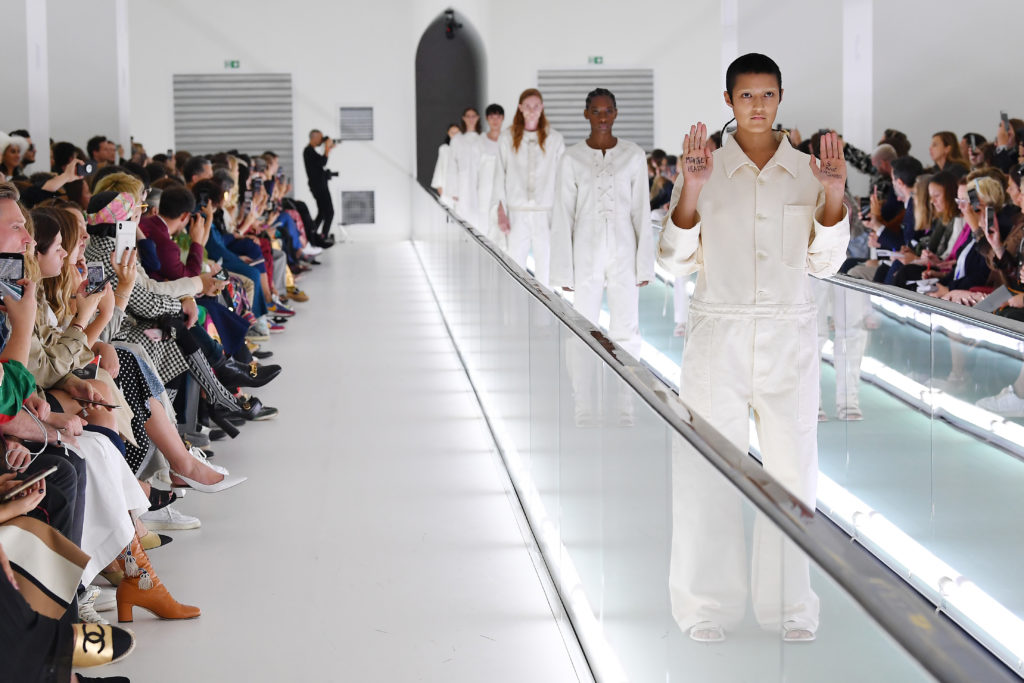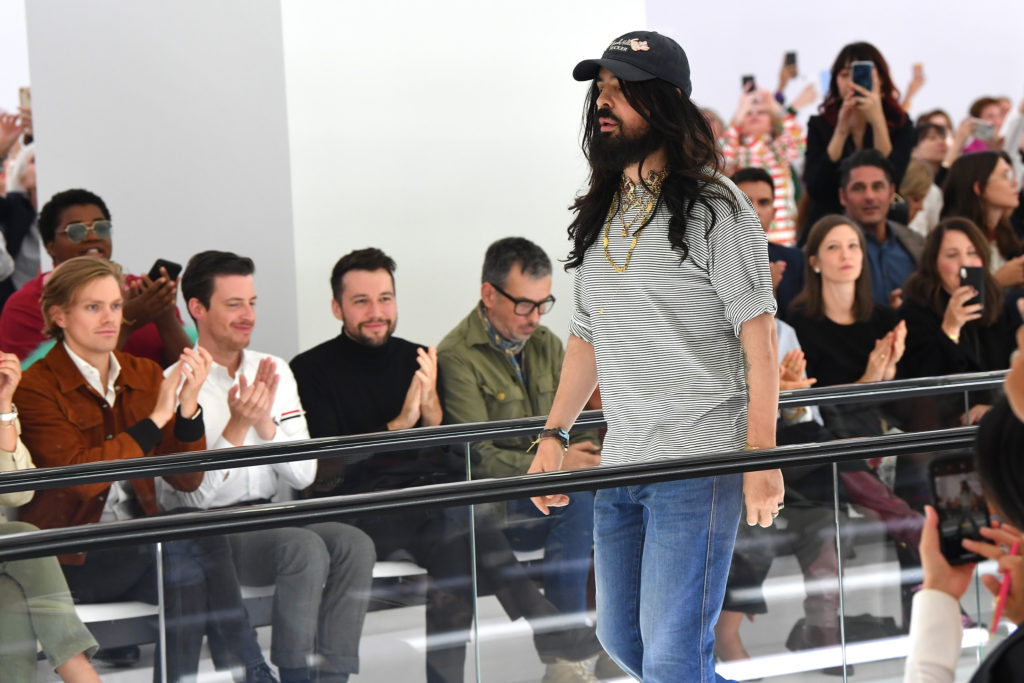Non-binary model protests on the runway over Gucci’s use of straitjacket-inspired fashion

Non-binary model Ayesha Tan Jones protested mid-catwalk against Italian fashion house Gucci’s use of straight jackets in its SS20 collection. (Jacopo Raule/Getty Images for Gucci)
A non-binary model protested on the runway against Gucci’s use of straitjacket-inspired fashion in the brand’s Spring/Summer 2020 collection.
Ayesha Tan Jones was one of a band of models buckling into the provocative pieces inspired by jackets once worn to pacify patients in understaffed asylums in the Victorian era.
While models hummed down the conveyor belt catwalk in the 20 straitjacket-esque pieces with their hands down, Jones held their’s up bearing the words “Mental health is not fashion” scribbled in pen ink.
Moreover, the 26-year-old paired the silent protest with a statement on their Instagram account.
Gucci evoking straitjackets was “hurtful and insensitive”, model says.
Jones wrote: “As an artist and model who has experienced my own struggles with mental health, along with family members and loved ones who have been affected by depression, anxiety, bipolar and schizophrenia, it is hurtful and insensitive for a major fashion house such as Gucci to use this imagery as a concept for a fleeting fashion moment.”
The model stated that “the stigma around mental health must end” and referenced how LGBT+ folk are more likely to suffer from mental health issues as consistent studies have showed.
As they lit into the brand, they outlined how queer youth are four times more likely to attempt suicide or experience suicidal thoughts.
Jones continued: “Many people with mental health issues are still stigmatised in the workplace and in daily life, while many people still do not consider mental health issues as ‘real illnesses’ as they may not be visible.
“Straitjackets are a symbol of a cruel time in medicine when mentaller illness was not understood, and people’s rights and liberties were taken away form them.
“While they were abused and tortured in the institution.”
Gucci creative director: “These clothes were a statement for the fashion show.”
Gucci, creatively helmed by Alessandro Michele, flirted with provocation and politics in the collection that closed this season’s Milan Fashion Week.
Fashion press, pundits and high-profile celebrities arrived at the venue to four moving walkways bathed in hard, cafeteria-lighting. The models strolled in, barefoot, wearing straitjacket-styled smocks, coveralls and anoraks.

Ayesha Tan Jones fronts runway at the Gucci Spring/Summer 2020 fashion show during Milan Fashion Week. (Jacopo Raule/Getty Images for Gucci)
But Jones tore into the brand for its “bad taste” and slammed the artistic direction of the conveyor belt for depicting those wearing the jackets “as if a piece of factory meat.
“Presenting these struggles as props for selling clothes in today’s capitalist climate is vulgar, unimaginative and offensive to the millions of people around the world affected by these issues.”
According to the New York Times, Michele had emailed attendees in a welcome note that name-checked Paul-Michel Foucault as influence.
The queer theorist was a plank in future academia around queer lives and had documented and theorised about how people’s bodies are controlled by dominant forces. Such as how some bodies are called ‘normal’ while others aren’t.
He also wrote extensively on mental healthcare providers across the centuries, comparing asylums as akin to prisons systems.

Designer Alessandro Michele acknowledges the crackling applause at the Gucci SS20 show. (Jacopo Raule/Getty Images for Gucci)
Michele later said in an interview to reporters: “Uniforms, utilitarian clothes, such straitjackets, were included in the fashion show as the most extreme version of restriction imposed by society and those who control it.
“These clothes were a statement for the fashion show and part of a performance.”
Given that the show, at its core, was about freedom, Gucci felt Jones should be free to protest.
In a statement issued on Instagram, the Milan-based brand said the clothes represented “how through fashion, power is exercised over life, to eliminate self-expression”.
Thelabel appointed its first diversity chief, Renée Tirado, in July.

